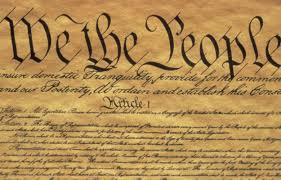The Constitutional Aspects of SB 13
Tony Lauinger out of Tulsa has self funded most of the anti abortion movement here in the state. A wealthy man, rather than enjoying his life without controversy he has made his life's work trying to outlaw abortion. Tony is the state chairman of Oklahomans for Life, the vice chairman of National Right to Life, and co founder of Tulsans for Life. The abolitionists, Dan Fisher, T. Russel Hunter, John Michener, among a few, have been publicaly attacking Tony claiming that he won't stop abortion because he is making money off the fight. The reality is that Tony doesn't solicit money for the effort, he pays out of his own pocket.
The abolitionist crazies keep rebranding themselves once they have sullied a name beyond redemption. Their latest name is Free the States, but the same old crazy activists still run the show without even bothering to change the public face of the group. And these groups actively fund raise, gathering over $121,000 for the Dan Fisher governor race and they are raising money to attack Senator Smalley over his pro life stance. Both Michener. Fisher, and Russel Hunter are raising money instead of self funding yet their finances are not transparent.
The abolitionists have set out to make pro life a dirty word. They are good enough charlatans to mislead a lot of well intentioned people but the reality is that they are in this for the notoriety and little else.
Those promoting SB 13 claim that it is necessary to repeal all pro life laws because pro life laws recognize the fact that courts have ruled abortion is legal. Yet they dismiss the idea that many things that are crimes have varying degrees of penalties. An example is wrongful death or negligent homicide instead of murder charges being filed. Or conversion of property or receiving stolen property versus theft charges. For the law to work it requires differentiation between offenses and that the penalty match the crime to avoid alienating the general public and them losing faith in the fairness of government.
Another point that the abolitionists push is nullification, something that the liberty and Tea Party crowd both believe in on some issues. Indeed the abolitionists mention sanctuary states but the difference is between passive resistance, in that the states simply refuse to enforce federal laws, and active opposition where the state goes looking for a fight with the feds.
Were SB 13 to become law, Oklahomans would have no protection for unborn children. Christian hospitals would be forced to engage in abortion, assisted suicide, and other practices that are contrary to their faith. The abortionists would challenge the law in court and with the Oklahoma Supreme Court being more liberal than the federal Supreme Court they would happily accept the bad parts of SB 13 while peeling off the good parts. All of the hard won anti abortion laws would be stricken down while also striking down the prohibition of abortion. The abolitionists believe that the poorly written inseverability clause would prevent this from happening but whoever wrote the bill was ignorant of the law and how courts work.
There are two types of unconstitutionality:
- a law can be ruled "unconstitutional per se," meaning there is no way that law could be ruled constitutional, or
- a law could instead be ruled "unconstitutional as applied," meaning that while the law might be constitutional in some circumstances, but not in the particular case the court is then ruling on.
What the courts would do is rule the ban on abortion in SB 13 unconstitutional as applied, each and every time a case came up. The court would not rule SB 13's ban on abortion being always unconstitutional, "unconstitutional per se," so the "inseverability" clause would not go into effect.
Then the court would also uphold the repealer of all the pro-life laws. So if SB 13 passes, a 30-year old man could seduce and molest your 16-year old daughter and get her pregnant, and he would be able to take your daughter to an abortion clinic without your even knowing about it. Christian hospitals would no longer have the protection of "conscience clauses" that SB 13 repeals, so they would be forced to allow abortions at Integris Baptist, Mercy, and St. Anthony's. Abortion clinics could lie to women considering abortion, to trick them into going through with it even when they had doubts, because SB 13 repeals "informed consent" laws. And there are many other examples of the bad consequences of SB 13.
Examples of courts ruling a law unconstitutional as applied instead of unconstitutional per se are:
Gonzales v. Carhart i(2007), n which the US Supreme Court declined to rule the federal ban on partial-birth abortion "unconstitutional per se," but ruled that the ban might be unconstitutional as applied to a situation where the mother's health was at risk.
FEC v. Wisconsin Right to Life (WRTL II) (2007), in which the US Supreme Court declined to rule certain FEC regulations on political speech "unconstitutional per se", but said those same regulations might be unconstitutional as applied to particular situations.
